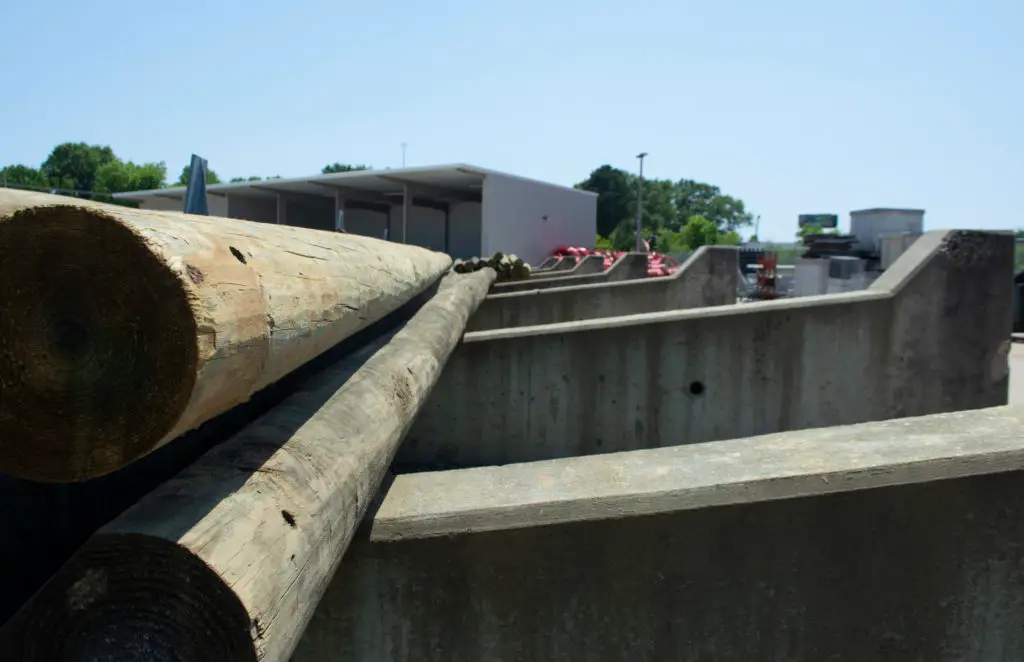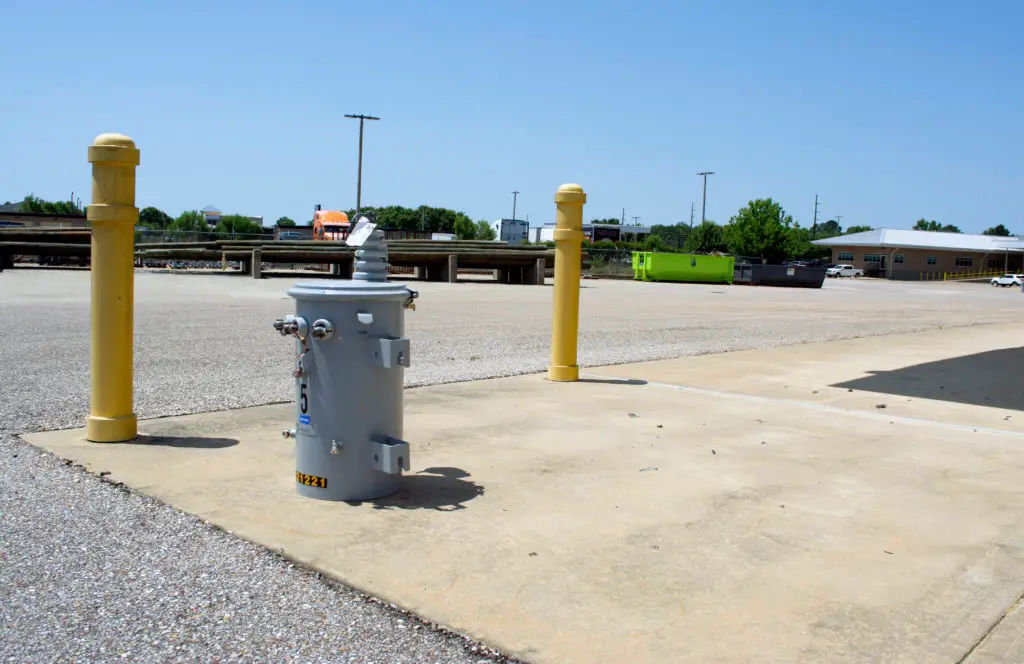Co-ops continue to struggle with supply chain issues
When Joey Arroyo spoke to AREA’s summer conference in July 2021 as part of a panel discussion on supply chain issues, some of the directors and managers may have been a bit skeptical of his rather dismal outlook for the problems that started with the Covid-19 pandemic.
Arroyo, who is senior vice president of Gresco and is based in Dothan, predicted a minimum of 35 to 40 percent increase in costs across the board and worsening lead times to order materials. He felt that some in the audience thought, eh, it won’t be that bad.
“Unfortunately, we seemed to be pretty accurate in our prognostications,” Arroyo said this month.
Gresco is cooperatively owned and provides products and services for the electric utility industry and covers most of the Southeast, from Texas into Kentucky; they’re an important partner for many Alabama co-ops.
The extent of the supply chain challenges is unprecedented, Arroyo says.
“It’s the worst I’ve ever seen in my 30 years in this business,” Arroyo says. “I’d love to show you some kind of ray of hope, but I just don’t know what it’s going to be.”
From the start

Most in the industry agree that problems started with the pandemic. Prior to March 2020, there were manageable issues, like increased demand for products in the summertime, and the occasional one-off item that was suddenly unavailable due to a component malfunction or a machine breakdown. But for the most part, these issues were foreseeable and consistent.
Then, the pandemic hit, and manufacturers for our industry had the same problems that others in any other industry did: Facilities were shut down, people weren’t working, and employees who were sick often had to stay out of work for multiple weeks. A plant that was running at 90 percent capacity all of a sudden went to 40 to 50 percent capacity, simply due to lack of labor, Arroyo says. Then there are the transportation problems that have crippled businesses and continue to do so today.
But the demand didn’t slow down – it more than doubled. “Almost instantly overnight, if you were at 8 to 10 weeks (lead time), you all of a sudden went to 32 weeks. The demand never stopped. They never caught up,” Arroyo says.
Suppliers are still blaming the pandemic today, says Dianne King, manager of purchasing and inventory for Dixie EC. “The demand for materials used in our industry is at an all-time high,” she says. “Everyone is busy, which translates into demand being high and supply being low.”
A few numbers
Across product lines that have always been 4 to 6 weeks, the lead time is now 24 weeks, Arroyo says. “Transformers are just awful. Every manufacturer is well out over a year.”

King agrees. “We have seen pole-mount transformers go from being a stock item at the distributor to having a 40-week delivery. Pad-mount transformers have gone from 6 to 8 weeks to 38 to 40 weeks. Wood poles have gone from 3 to 5 days delivery to 4 weeks in some instances.”
While not all products have such a long lead time, those that relate to the true electrical infrastructure are that way, Arroyo says. Voltage regulators that go into substations have a 2 ½-year lead time; substation transformers are a year to 18 months.
A fact sheet released May 10 by NRECA reports that digital meters, bare wire and primary underground distribution cable are all taking longer to procure.
Costs have risen dramatically. “The cost has risen by alarming rates,” King says. “Some three-phase pad mounts have at least doubled, if not tripled, in price. The cost of every piece of material has increased over the past year.” NRECA reports that orders for electrical conduit have been delayed five-fold and costs are up 200 percent, year over year.
Which leads to one of the key issues facing co-ops today, Arroyo says: allocation.
The major issues
In his 30 years in the co-op world, Arroyo says this is the first time Gresco has ever been on allocation. (Meaning, manufacturers are limiting their distributors on the amount of product they can buy from the manufacturer over a particular time period.)
Transformers, conductor, PVC products – all are on allocation, and there’s no relief in sight, Arroyo says. And it doesn’t matter how good the customer is or how many millions of dollars in business the customer has done previously. “They can’t catch up.”
The other huge concern is firm pricing – or the lack of it. “Because the lead times are so far out now, manufacturers are not willing to run the risk of having another (disruption) so that they’re left holding the bag,” Arroyo says. “Everything is subject to either monthly or quarterly adjustments, up or down. That’s something we haven’t had to deal with in 15 to 20 years.”
For example, a truck that was purchased for $135,000 last year might be priced on the purchase order for $185,000. But there is a clause that states every price is subject to change, even if the expected delivery time is a year or more away.
Such a pricing situation isn’t for the faint of heart. Those co-ops who wring their hands over costs will get “passed in line,” Arroyo says. “You’re going to end up without anything. They (manufacturers) will go on to somebody who’s willing to pay it and just move on.”
What can be done?
For its part, NRECA says it has actively raised attention among federal policymakers throughout the executive and legislative branches to ensure they fully grasp the scope of how these supply chain challenges are impacting the electric sector. At this year’s NRECA Legislative Conference, the Department of Energy has made addressing supply chain constraints a top focus “as a result of our outreach and dialogue with agency officials,” NRECA says.
At the co-op level, Arroyo and King agree that while co-op purchasers have always been good planners, they now have to be even better planners.
And the outlook is not all doom and gloom, Arroyo says. Manufacturers are getting their feet back under them, he says, and Gresco is still getting product; it’s just not at the same level that it used to be.
“It’s hard to articulate. It’s something we’ve never experienced. (But) it could be worse,” he says. “We’re in uncharted territory.”